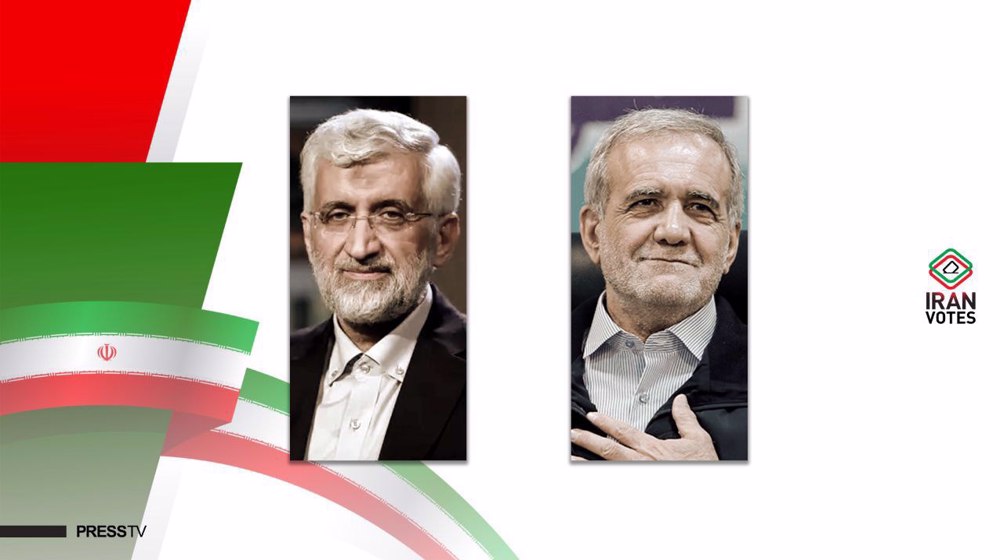Polls have closed in Iran’s presidential runoff election after three extensions were announced by the interior ministry to accommodate more voters amid a significantly large voter turnout.
Mohsen Eslami, spokesperson for Iran’s election headquarters, announced the end of the voting process during a press conference held at the interior ministry in the capital Tehran.
Vote counting began immediately at some polling stations and will begin at other stations after those who are still inside and waiting in queues cast their ballots, he informed.
Two candidates, Masoud Pezeshkian and Saeed Jalili, are vying for the top executive office of the Islamic Republic of Iran after securing the most votes in the June 28 election.
Pezeshkian is a veteran lawmaker and former health minister, while Jalili previously served as the lead nuclear negotiator and head of the Supreme National Security Council.
Voting began at 8:00 AM local time (04:30 GMT) on Friday across the country and was scheduled to end at 6:00 PM local time (14:30 GMT), subject to extensions.
The polls finally closed at 12:00 AM local time (08:30 GMT) on Friday, six hours beyond the stipulated 10-hour voting period as required by the Constitution.
The three two-hour extensions were approved by the interior minister at the request of voters.
Throughout the day, people flocked to polling stations in their respective cities and villages across the country, braving scorching heat wave, to exercise their voting rights.
Men and women, young and elderly – all eligible voters displayed tremendous patriotic fervor to participate in the runoff election on Friday in order to shape the future of their country.
War veterans headed to polling booths using crutches or hospital beds to cast their ballots.
In the first round of the election on June 28, polling stations remained open until midnight local time, with a final voter turnout of around 40 percent, as recorded by the interior ministry.
In Friday’s runoff election, more than 30 million votes were cast accounting for over 50 percent turnout as more people flocked to polling stations in Tehran and other cities and villages across the country.
About 61 million people were eligible to vote in this year’s presidential election, including approximately 10 million Iranian nationals eligible to vote abroad.
Except for Canada, where authorities created hurdles in setting up polling stations for Iranian nationals to take part in the runoff vote, other countries offered cooperation in facilitating the process.
However, in the United Kingdom and Australia, groups of monarchists tried to disrupt the election and harassed Iranian nationals heading to the Iranian diplomatic missions to cast their ballots.
In London, a group of monarchists were seen holding the flags of the MKO terror cult and the Israeli regime outside the Iranian consulate to disrupt voting in Iran’s presidential runoff election on Friday.
The vote counting will continue throughout the night, with final results likely to be announced on Saturday morning.
The snap presidential election was called after President Ebrahim Raeisi was martyred along with seven others on May 19, when the helicopter carrying them crashed in northwestern Iran.

